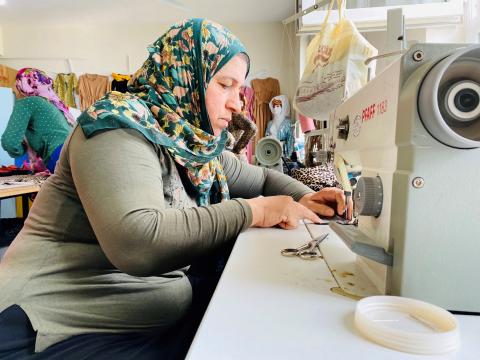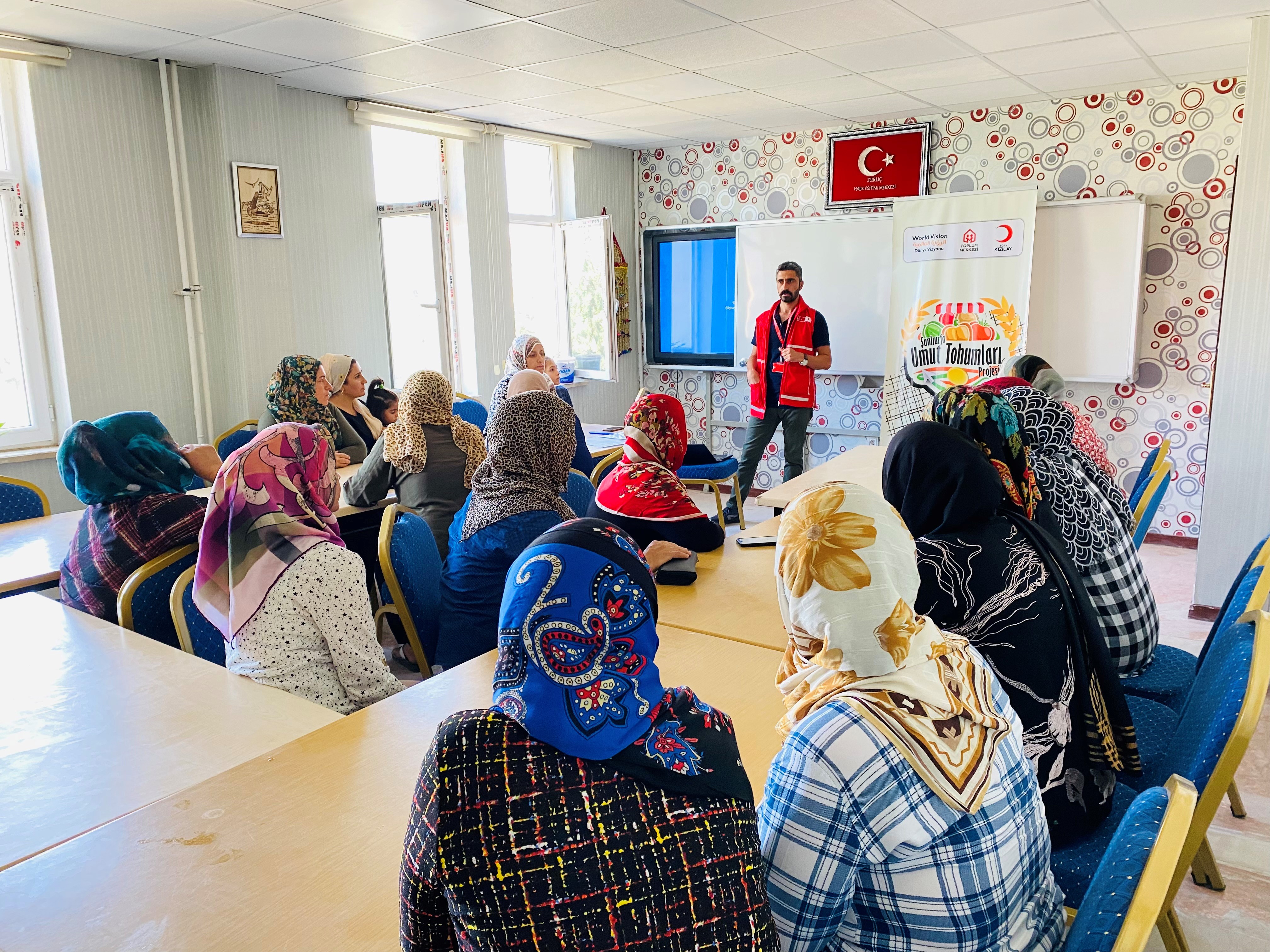Asia* Plants Seeds of Hope for her Children

Over the past years, the role of women has changed from a caregiver to a provider, working to support their families. In the case of Syrian women, this shift resulted from the war as poverty rose, making 90% of the population unable to meet their daily needs. To provide life necessities and find a source of income, Syrian women today are expected to lead their houses by working inside and outside the home. Some women took on full parental responsibility for their children due to the absence of their husbands who lost their lives in war or were rendered incapable of supporting their families. Besides their attempts to secure food and other basic needs, they also need to enrol their children in schools. Still, many Syrian refugees are unable to afford education, leaving nearly one-third of Syrian children in Türkiye out of school.
Forty three-year-old Asia*, is one of these women who worked for her children’s sake. Having seven children, the oldest is 21, and the youngest is four, war forced Asia to face life hardships herself while her husband was working abroad. Passing through many financial setbacks, she is trying to provide a decent life for her children.
“When my kids need something, they come directly to me. Because they think their mother will find a solution to every problem,” she says. Soon after the war erupted, their life became impossible in Syria, Asia’s brother warned her that bombing might reach their house at any moment. She began to feel fear. “The war was almost on our doorstep,” that is how she expressed.
With a heart full of fear, Asia and her children left their home and started their displacement journey only with a few bread pieces nine years ago. This was a compulsory choice for her, she had no other options, “The hardest part was leaving my home, my country, my memories…immigrating to Türkiye.” Asia said. Türkiye was the best choice as the closest to the Syrian border. “We couldn't go to another country because we had not neither food nor energy.” Asia explained. After a lot of anxiety and stress, Asia felt immediate relief when they reached the Turkish border. "That moment, I knew we were safe." Eventually, Asia’s husband, joined them once again.
Starting a new life doesn’t mean her struggles are over, she had to plan for family's future. Finally, after five years of living in tents, they managed to rent a house in Suruc, but this meant their expenses increased as they now needed to pay bills. Asia recalled back at the refugee camp, “we had two tents... we didn’t pay the bills such as electricity and water before.” To manage their needs and pay for education fees, five of her children had to work after school. “My children finish their seasonal work [in agricultural fields] and prepare for school. Then, during the weekend, they help me in the field. The rest of the week, they go to school,” she tells.
Asia’s husband works occasionally as he is sick. Seeing her children work puts a strain on Asia, knowing their rightful place is in school. She knows this struggle too well, as she never had the chance to finish her education; seeing history repeating itself breaks Asia’s heart. With all of the pressure put on her, Asia still hopes for a better future; she doesn’t want them to work, she only wants them to concentrate on their education.
“If I Get In-House Production Support, My Children Will Not Have to Work”. Asia expressed.
Asia began considering how she might meet all of her children's needs and support them to finish their education. Home production was a good choice for her to bring extra income but entering the Turkish labour market wasn’t easy for her. “I believe I can produce and sell. I will do this for my children,” she thought. Asia has 18 years of tailoring experience which she can consider a profession. Through a friend, Asia knew about Seeding Hope for Şanlıurfa II project. She immediately applied for their vocational courses and was accepted. Excited to start her training and all she could think about was sustainability. Now, Asia’s children no longer have to work to keep themselves in school, their mother is able to afford their tuition and provide a respectable life for the family.

© Turkish Red Crescent
About the Project
World Vision is working with the Turkish Red Crescent to support Syrian refugees in Şanlıurfa, Türkiye through Seeding Hope II Project. It promotes child safety and empowers vulnerable families socially and economically to help them enter the labour market. Asia is one of the 400 people participating in the empowerment project. She is working towards honing her skill and learning new techniques hoping to sell her products and generate income covering her children’s wishes.
*Name has been changed to protect identity.